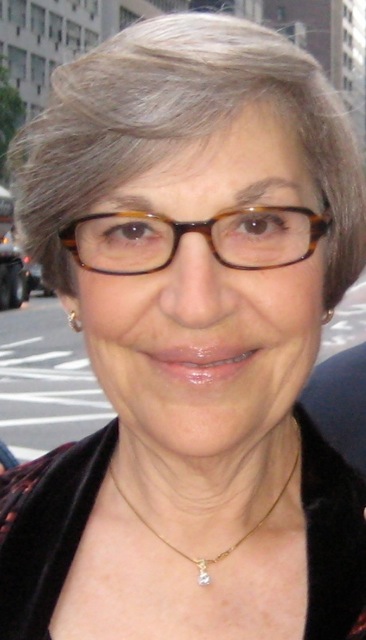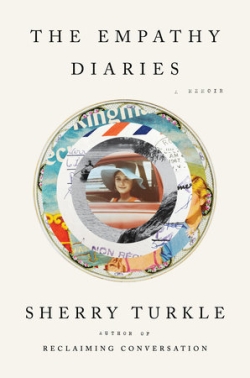The Empathy Diaries is Dr. Sherry Turkle’s fascinating attempt to explore, as she explains, “how this personal story meshed with my professional journey” – and what an illustrious professional journey this dual sociologist and clinical psychologist has had!
Dr. Turkle is the Abby Rockefeller Mauzé Professor of the Social Studies of Science and Technology at MIT and founding director of the MIT Initiative on Technology and Self. She has authored six books and edited three collections; she is the recipient of a Guggenheim and Rockefeller Humanities Fellowship and Harvard Centennial Medal; and she was named a Ms. magazine Woman of the Year and to Esquire magazine’s list of “40 Under 40” who are changing the world.
In sorting out her personal life, Dr. Turkle raises questions in her memoir, such as: How do humans interpret reality? How do we develop a sense of self? How do we develop feelings, relate to each other, and develop and maintain empathy? How do machines affect the way we see ourselves as humans? What makes us different from machines? How do humans and machines interact? Do machines progressively rob us of emotions and the ability to empathize with others?
Dr. Turkle began dealing with these issues in the 1970s, at the outset of the digital revolution. Far ahead of her time, she questioned what impact these inventions would have on our intellectual and emotional lives. She tells us:
“My subject is the ‘inner history’ of technology, how it changes our relationships, including our relationship with ourselves. Over the years at MIT, I have been able to see how easy it is for a fascination with technology to take well-intentioned people away from empathy and its simple human truths.”
She bravely defied traditional academic categories by obtaining a joint doctorate in sociology and personality psychology from Harvard University, as well as becoming a licensed clinical psychologist in order to construct her own unique career path. She accomplished all this as a woman who defied the cultural normality of her time, represented by her mother’s insistence that the goal of nice, middle-class Jewish Brooklyn girls is get married and have children. Having a suitable career “to fall back on” would be as a teacher, nurse, or social worker.
For Turkle, the “normality” of the family her mother allowed the outside world to see was a deliberately created illusion, and addresses the negative effects lies and secrets can have on individual members and the family as a whole. Her parents divorced when Sherry was very young, and her mother forbade her from telling anyone that her stepfather was not her birth father or to reveal her real last name. She reflects on the significance of this imposed secret:
“The name of the father is communicated with or without the father’s presence. It’s all in how the mother presents him. Or erases him. Later I would come across the thought that an absent father makes everything seem possible and nothing seem safe. You have no name. You can be anyone.”
Determined to be somebody, Sherry made her way through Radcliffe with a scholarship, loan, and a campus job. She took time off to live in France, returned to Radcliffe, then Cambridge, the University of Chicago, and graduate school at Harvard and MIT. Through determination and fortitude, she forged a unique career path and pioneered in the study of the interaction of humans and machines in the emerging digital age.
Turkle relates her intriguing life in a wonderful and easily accessible writing style, with insight and humor. Although I was not able to completely navigate Turkle’s intellectual questions and professional debates, I learned much from this book and could personally relate to her life story.
Many aspects of her early life were similar to mine, though I am 8 years older and grew up in a small town in the Midwest where Jews were outsiders rather than in Turkle’s insulated Jewish universe of Brooklyn. In the 1960s, we pretentious young intellectuals embarked on many adventurous trips to Europe following the famous guidebook Europe on Five Dollars a Day. The same pre-feminist narratives ruled my life: Boys don’t like smart girls. And I, too, had to carefully navigate the sexism of the academic world.
Everyone will benefit by reading this wonderful book. Women of a certain age will relate to Turkle’s childhood, teenage, and adult struggles. Younger men and women will understand and appreciate more fully the advances made by feminist pioneers such as Turkle. All will enjoy the skillfully written autobiography of this truly amazing woman.



